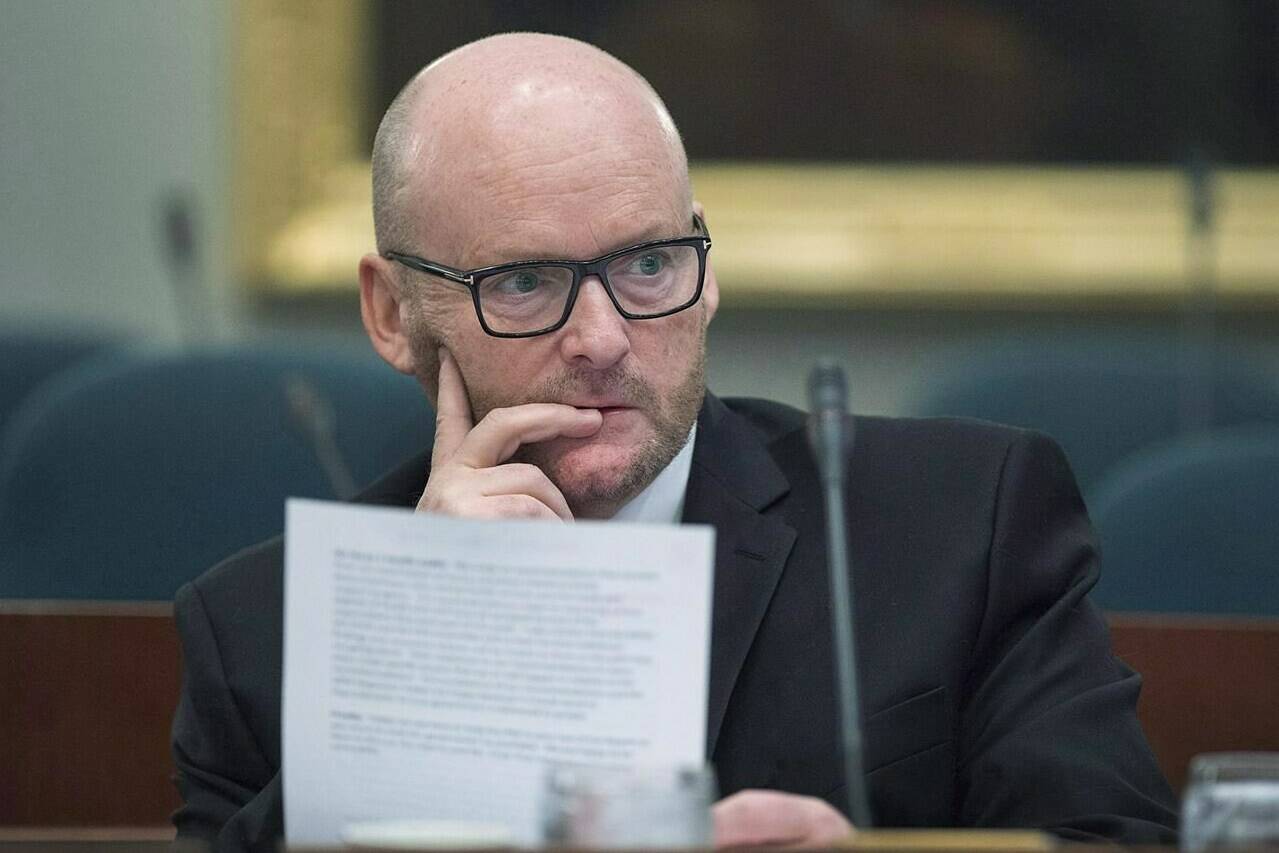B.C.’s auditor-general says the provincial government made three accounting misstatements in its latest annual financial report, marking the 16th year in a row that issues have been found.
Michael Pickup submitted his initial audit of the 2022/23 summary financial statement back in August, but released a new report detailing his findings further on Tuesday (Nov. 28). The new report, according to Pickup, is intended to be a guide for MLAs to better understand how the province is reporting its finances so they can make their own informed spending decisions.
“It is important because economic decisions depend on the best financial information available,” Pickup said during a media briefing on Tuesday.
He said it is his job to determine if the province’s financial statements are completed in accordance with Canadian Public Sector Accounting Standards. In 2022/23, Pickup said he identified three instances in which the province was not.
The first was in relation to how the province reports funds for restricted purposes.
Here, Pickup gives the example of a hospital. He said if the province was given funding from the federal government to build a new hospital with a 40-year lifespan, Canadian accounting standards would dictate that the province recognize the money it received as revenue as soon as construction is complete.
What B.C. does, by contrast, is report the revenue bit by bit over the 40-year lifespan of the hospital, Pickup said. In 2022/23, this resulted in revenues being understated by $6.97 billion, giving the appearance that the province needed to raise that amount to cover its obligations.
He said the province has been making this kind of misstatement for 12 years.
The second misstatement Pickup reported was an incomplete disclosure of the province’s contractual obligations, which amount to $4.9 billion in 2022/23. Pickup said doing so makes it difficult for MLAs to know what money government has already committed to spending in the future. It also makes it more challenging to hold government to spending promises.
Under Canadian standards, financial statements are supposed to include any contractual obligations that commit the government to certain spending for a considerable period into the future. Pickup said this is the second year in a row the province has made this kind of misstatement.
The final issue Pickup noted was in how the province accounts for monies paid to First Nations under the Gaming Control Act. Pickup said the province’s last two annual financial statements didn’t report the seven per cent of gaming income the province has been required to pay to the BC First Nations Gaming Revenue Sharing Limited Partnership since 2020.
In 2022/23, this misstatement resulted in revenues and expenses being understated by $113.6 million, Pickup found.
He said himself and former auditors general have found issues with B.C.’s summary financial statements every year for the past 16 years. Taken together, they identified 38 material misstatements.
“That is a lot, and that is not a good thing.”
In a statement filed in response to Pickup’s report, Comptroller General Carl Fischer disagreed with each of the auditor-general’s findings. He said their accounting practices are in-line with the Public Sector Accounting Board, an independent body that establishes accounting standards for the public sector in Canada.
Fischer said altering how they report funds used for restricted purposes, such as a hospital, would make it so their budget and actual results are no longer directly comparable. He said it would also artificially constrain future program spending during economic downturns.
When it comes to contractual obligations, Fischer said Pickup was asking them to disclose future payments under the gaming revenue arrangement. Fischer said he disagreed that this amounted to a contractual obligation.
He further said the province doesn’t report the seven per cent of gaming revenue paid to First Nations because it is the First Nations that have the right to report that revenue.
Asked about the discrepancies between his understanding of proper accounting practices and the province’s, Pickup said Tuesday that while the government may be relying upon independently-created standards, it is still government employees doing the accounting work. The auditor-general, by contrast, is a fully independent person, Pickup said.
He is set to release a second follow up report on his audit in the new year, which will delve into other issues such as income tax revenue estimates.
Conroy said her ministry respects and appreciates the work of Pickup.
“It has been a number of years now that the ministry … has disagreed with the auditor-general on the three discrepancies that he has raised,” she said, adding that she believes B.C. is one of the most transparent jurisdictions when it comes to giving MLAs access to financial information.
“We are still the only jurisdiction that does estimates, which allows all of our MLAs to ask the questions of ministers about their budgets.”
BC Green Leader Sonia Furstenau, meanwhile, seized Pickup’s audit to cast doubt about Conroy’s financial forecast report for the second quarter of 2023.
“How are we supposed to have faith that this government can run the province, when they can’t even manage public accounts properly?” she asked.
“Accounting errors by the (government) mean there is $134 million additional in the surplus in this financial year,” she said. “The people of B.C. are expected to keep their financial affairs in order, and they should be able to expect the same from their government.”
-With files from Wolfgang Depner

